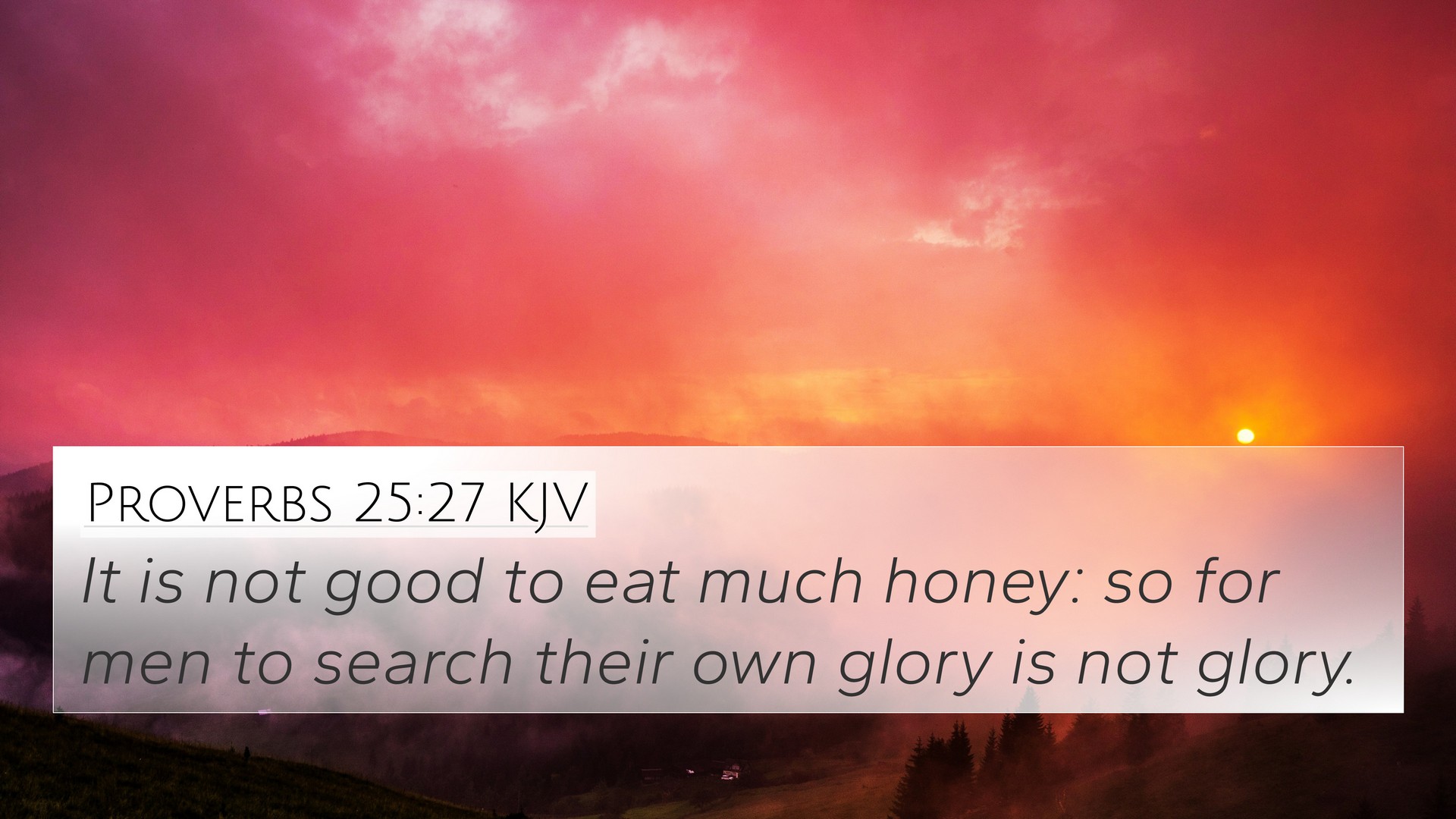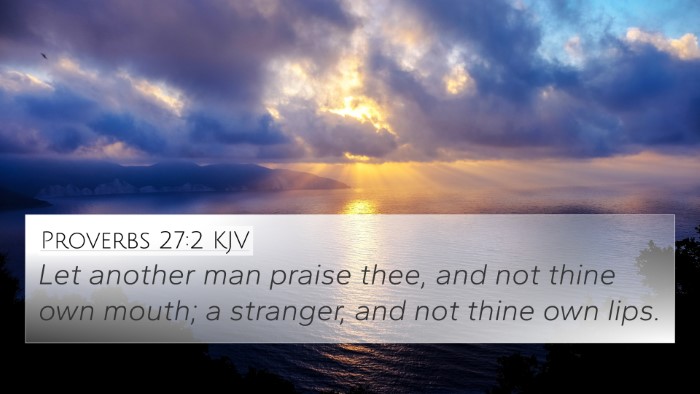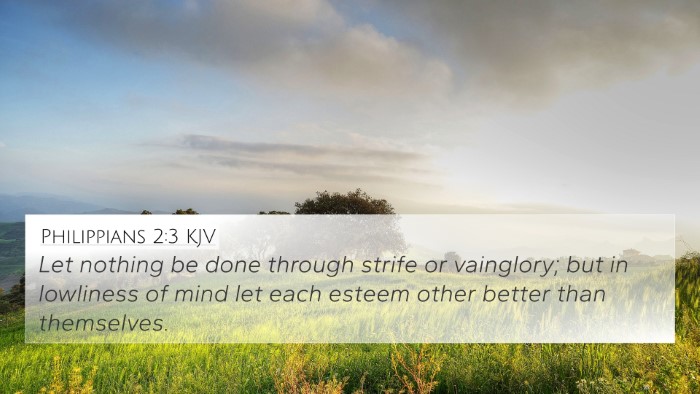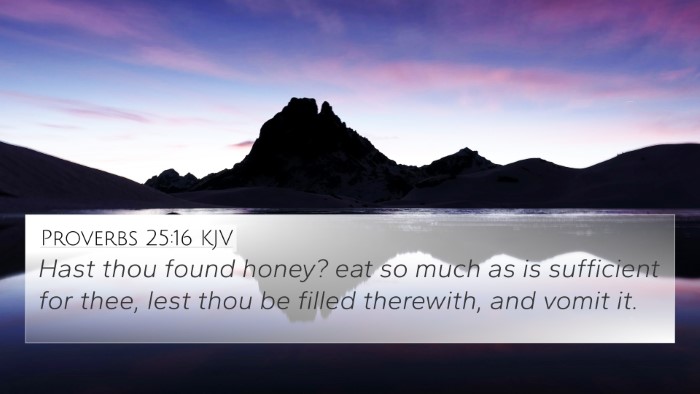Understanding Proverbs 25:27
Proverbs 25:27 states, "It is not good to eat much honey: so for men to search their own glory is not glory." This verse offers profound insights into humility and moderation.
Summary of Insights from Public Domain Commentaries
This verse serves as a moral lesson regarding excess and pride. The imagery of honey, which is sweet and desirable, highlights the dangers of overindulgence, while the pursuit of personal glory leads to empty pride.
Key Themes
- Moderation: Just as eating too much honey can lead to discomfort, so too can excessive pride lead to negative consequences.
- Humility: Seeking one’s own glory detracts from true honor and recognition, which come from humility and service to others.
- Self-Awareness: The verse prompts readers to examine their intentions and the motivations behind their actions.
Bible Verse Cross-References
Proverbs 25:27 connects to various other scripture passages that reinforce its themes:
- Proverbs 16:18: "Pride goes before destruction, and a haughty spirit before a fall." This verse directly links pride to downfall.
- Philippians 2:3: "Let nothing be done through strife or vainglory; but in lowliness of mind let each esteem other better than themselves." This promotes the value of humility over personal ambition.
- Romans 12:3: "For I say, through the grace given unto me, to every man that is among you, not to think of himself more highly than he ought to think." This emphasizes a sober self-assessment.
- James 4:6: "But he giveth more grace. Wherefore he saith, God resisteth the proud, but giveth grace unto the humble." This verse connects divine favor with humility.
- Galatians 6:3: "For if a man think himself to be something, when he is nothing, he deceiveth himself." This echoes the message of self-awareness.
- Proverbs 11:2: "When pride comes, then comes disgrace, but with humility comes wisdom." It reiterates the downfall that arises from pride.
- Matthew 23:12: "For whoever exalts himself will be humbled, and whoever humbles himself will be exalted." This biblical principle affirms the value of humility.
Connecting Bible Scriptures
This verse illustrates the linkage between several critical Biblical themes such as pride, humility, and moderation. By examining adjacent verses and their broader context, we can explore:
Thematic Bible Verse Connections
- The relationship between indulgence and self-control.
- The emphasis on serving others over seeking personal glory.
- The intricate dialogue between the Old and New Testaments regarding humility.
Tools for Bible Cross-Referencing
To further explore the connections highlighted in Proverbs 25:27, consider utilizing these tools:
- Bible Concordance: A valuable resource for locating specific words and their occurrences across scriptures.
- Bible Cross-Reference Guide: A tool that outlines relationships between verses to enhance understanding.
- Cross-Reference Bible Study: Methods to engage in deeper study through related verses.
How to Use Bible Cross-References
Understanding and applying Bible cross-references can deepen insight into scripture. Here are some methods:
- Compare Themes: Identify similar themes across different books.
- Study Profiles: Assess how individual characters represent humility and pride.
- Contextual Analysis: Look at the historical and situational context of references.
Conclusion
Proverbs 25:27 not only warns against the dangers of excess and pride but also serves as a call to humility and moderation. The connections between Bible verses and the cross-references enrich our understanding of these pivotal concepts. Utilizing Bible reference resources and cross-referencing methods can greatly aid in deeper scriptural analysis.








